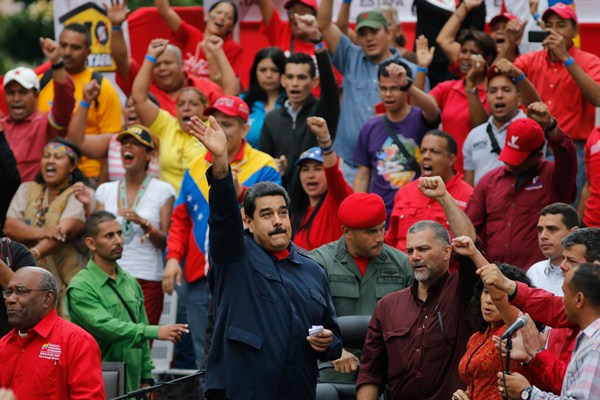A series of crises at home, including a new plan to ration electricity, are not the only issues facing Venezuela. Abroad, the regional coalition forged by the late Venezuelan President Hugo Chavez is starting to unravel. The ongoing impeachment saga of Brazilian President Dilma Rousseff and the possible departure of her Worker’s Party from power are the latest in a series of developments that has complicated Venezuela’s international relations for Chavez’s successor, Nicolas Maduro.
In November, Cristina Fernandez de Kirchner’s chosen successor lost Argentina’s presidential election, ending more than a decade of Kirchnerism, which found common cause with Venezuela’s leftist revolution. In February, Bolivians defeated a referendum that would have allowed President Evo Morales to run for a fourth term. This followed Ecuadorian President Rafael Correa’s announcement last November that he would not be running for re-election. Add to this the re-establishment of diplomatic relations between the United States and Cuba and the reduced attractiveness of Petrocaribe, the oil alliance between Venezuela and several Caribbean states, in the face of an international oil glut.
This changing context was evident in the region’s response to the Obama administration’s renewal of targeted sanctions on Venezuelan officials on March 3. Venezuela recalled its charge d’affairs from Washington, vowing to review its relationship with U.S. and holding an “anti-imperialist” march. But in the rest of Latin America, there was only a modest echo—unlike the announcement of the original executive order in March 2015, which generated a regional backlash.

